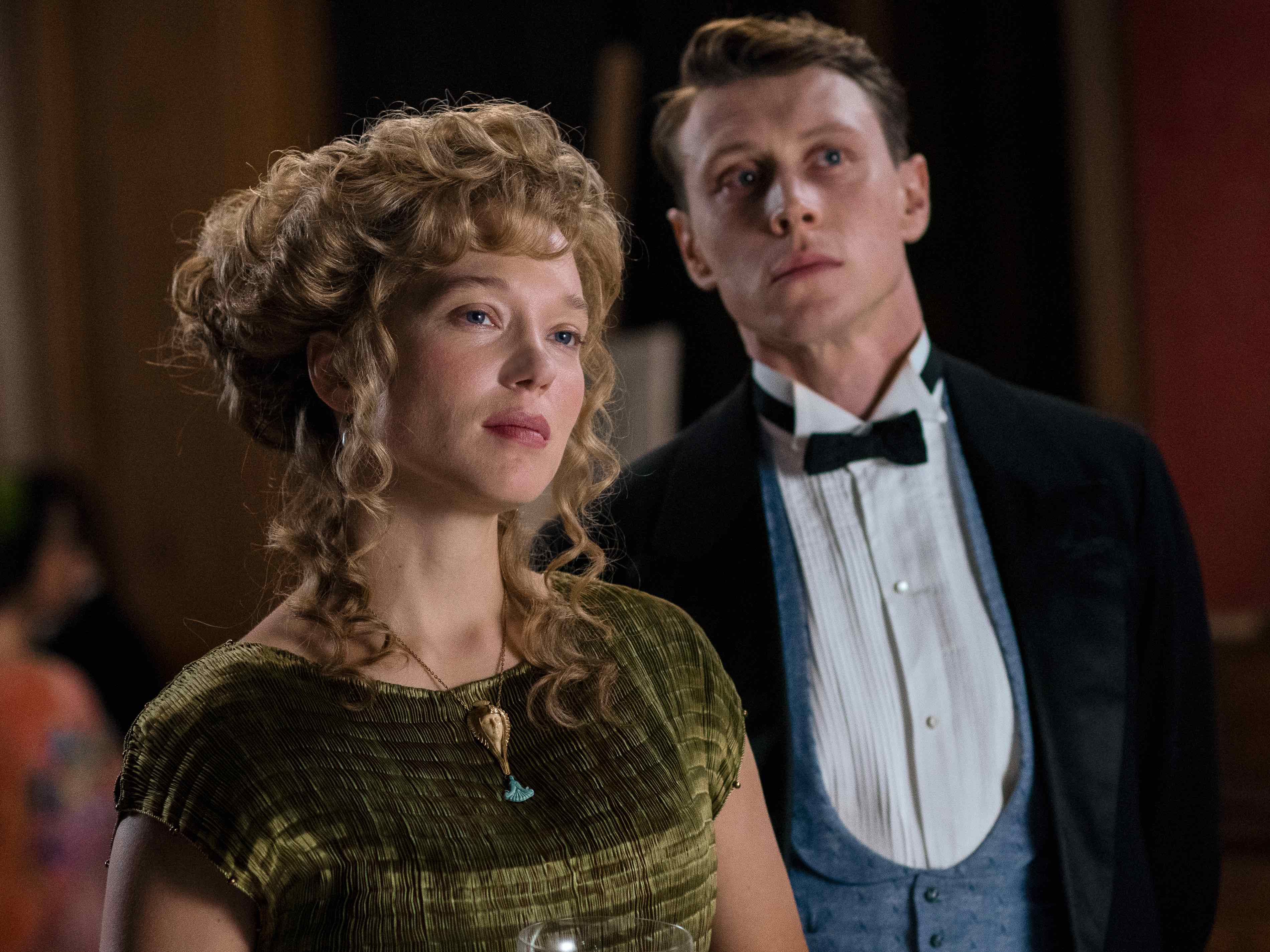
In the near future artificial intelligence is in control of everyone's lives and human emotions are perceived as a threat.
EN
“First, I wanted to paint a portrait of a woman and deal head-on with love and melodrama. Then to confront it with genre cinema since to me romance and genre seem to respond to each other. My desire was to interweave the intimate and the spectacular, classicism and modernity, the known and the unknown, the visible and the invisible. To speak, perhaps, of the most heartbreaking of feelings, the fear of love. The film I made is also the portrait of a woman that almost turns into a documentary about an actress.”
Bertrand Bonello1
“The film is a near-dystopia. I say “near” because day by day, I feel we are getting closer to the realities it presents. I wanted it to be set in a near future so that the viewer would find it imaginable – almost within reach, allowing them to project themselves into it. The film can be summarised quite simply. In an era where Artificial Intelligence has solved all of humanity's problems by taking control, an intelligent woman must choose between finding an interesting job or keeping her emotions. And thus, possibly living the love she dreams of. […] Work or emotions... It’s a dreadful dilemma, one we may be heading towards, in an increasingly controlled society, where the growing lack of privacy goes hand in hand with a loss of freedom. But this dilemma allowed me to develop a narrative and reflection on the history of feelings. The present in the film has become almost unbearable – despite, or perhaps because of, the absence of problems – so the past becomes a refuge.”
Bertrand Bonello2
“It would seem a paradox, but this is what Bonello captures most convincingly in the part of the film that takes place in 2044, in a world that closely resembles our own but is dominated by artificial intelligence. It is a world that suppresses the heterogeneous and the unconscious, a world where humans are not only reduced to appendages of machines (Seydoux’s job is to check the temperature of a data plate, something that could seemingly be done by rudimentary machines even today) but are also reprogrammed to suppress any disturbing emotions. What we see is paradoxically a much more “human” world, though this humanity is without fear or anxiety, and thus without the “inhumanity” of the unconscious and the blind spots of subjectivity: AI is in fact represented by Bonello as a world of absolute visibility. The woman played by Seydoux undergoes an operation to reprogram her entire DNA and erase all fear and past trauma. It is only because of a 0.7 percent margin of error in the machine that the protagonist’s body involuntarily resists the operation.”
Pietro Bianchi3
FR
« Le film est une quasi-dystopie. Je dis quasi parce que jour après jour, j’ai l’impression que nous nous approchons des constats qu’il pose. Je voulais qu’il s’agisse d’un futur assez proche pour que le spectateur le trouve imaginable. Qu’il le touche presque du doigt et qu’il puisse s’y projeter. On peut résumer le film d’une manière très simple. À une époque où l’Intelligence Artificielle a réglé tous les problèmes de l’humanité en prenant le pouvoir, une femme intelligente doit faire un choix entre trouver un travail intéressant ou garder ses affects. Et donc possiblement vivre l’amour dont elle rêve. Pour se débarrasser de ses affects, elle doit replonger dans ses vies antérieures pour nettoyer les traumatismes anciens qui contaminent son inconscient. Et elle va se confronter à une histoire d’amour qui traverse les vies et les époques, ce qui va évidemment la perturber dans son choix. Le travail ou les affects... C’est un dilemme atroce, vers lequel nous nous dirigeons peut-être, dans une société de plus en plus contrôlée, et dont l’absence grandissante de rapport au secret rime avec absence de liberté, mais qui m’a permis de développer un récit et une réflexion sur une histoire des sentiments. Le présent du film étant devenu quasi invivable malgré – ou à cause de – l’absence de problèmes, le passé devient le refuge. »
Bertrand Bonello1
- 1Bertrand Bonello en conversation avec Emmanuel Burdeau, dossier de presse du Imagine Film sur La bête.

